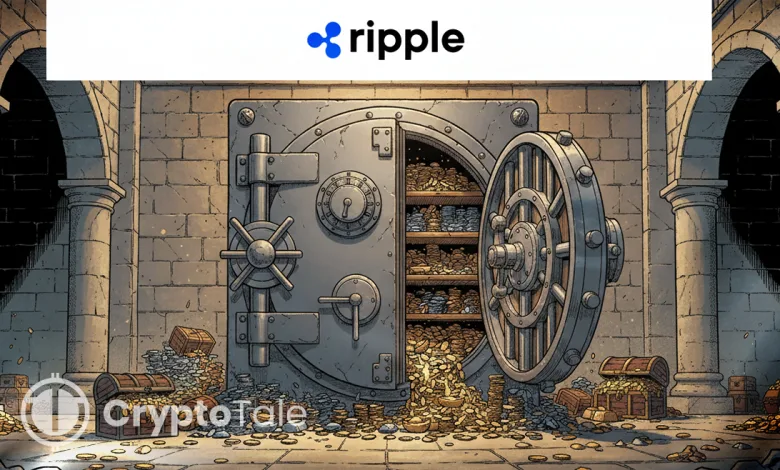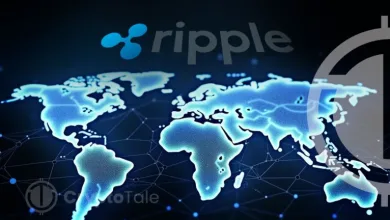Ripple Goes All-In on Institutional Custody with Palisade

- Ripple acquires Palisade to enhance institutional-grade crypto custody and wallet tech.
- Acquisition expands Ripple Custody for tokenized assets, stablecoins, and securities.
- The move aligns with Ripple’s $4B push to build a unified blockchain infrastructure globally.
Ripple has expanded its institutional infrastructure services through the acquisition of Palisade, a technology provider of digital asset wallets and custody solutions, helping it become more competitive in the institutional crypto custody market. The acquisition will combine Palisade’s multi-chain wallet technology and real-time transaction infrastructure with Ripple’s existing custody platform, increasing its ability to serve financial institutions, fintechs, and corporates.
Multi-Chain Custody Solutions with Palisade
The Palisade technology introduces an advanced wallet-as-a-service infrastructure that enables rapid wallet provisioning, high-frequency transaction processing, and compatibility with major blockchains. Ripple stated that the move will enable it to provide enhanced custody services for tokenized assets, stablecoins, and digital securities across several blockchains.
The company has also been aggressively expanding into institutional services, seeking to create a unified platform that combines custody, liquidity, treasury services, and payment solutions. Ripple’s leadership indicated that the Palisade acquisition makes it a single solution in the fast-changing world of tokenization for digital asset custody. This is also part of Ripple’s $4 billion investment in the crypto ecosystem through mergers, acquisitions, and strategic alliances.
This acquisition time underscores Ripple’s intention to become one of the world’s critical infrastructure providers for the digital asset economy. Using Palisade wallet technology, Ripple can now accelerate user onboarding, enhance security, and scale its wallet operations across various blockchain networks, including Ethereum, Solana, and the XRP Ledger.
Related: Ripple’s Evernorth Secures $1 Billion in XRP Holdings: Report
Expanding Reach in the Institutional Crypto Space
For institutional clients, this expansion implies faster wallet creation, stronger security, and greater blockchain interoperability. Palisade’s technology helps enterprises eliminate the constraints of running digital assets at scale, while Ripple’s bank-grade vault infrastructure supports compliance and regulatory preparedness.
The purchase also indicates that Ripple is willing to compete with some of the biggest institutional custody and digital asset infrastructure providers. A mix of custody, wallet, and payment layers makes Ripple distinct from providers such as Fireblocks, BitGo, and Anchorage, which offer end-to-end solutions rather than isolated services.
This move is considered by market observers to put Ripple in line with international trends in tokenization and regulatory compliance. Ripple, which matched its Palisade flexible wallet infrastructure with its compliance framework, responds more directly to the institutional needs, suggesting that the company aims to reconcile traditional finance with blockchain systems.
Advancing Integrated Solutions for Digital Asset Custody
In the first half of 2025, Ripple acquired the prime brokerage firm Hidden Road and the treasury management platform GTreasury, both to add to its institutional service stack. All these acquisitions underscore Ripple’s focus on building a platform that supports all aspects of financial institutions. The move by Ripple is also reminiscent of its recent activity in tokenization and physical asset management, where custody is an essential part.
The company has been developing solutions for banks and corporations seeking to issue stablecoins, implement CBDCs, and settle cross-border transactions using tokens. Palisade allows Ripple to solidify its infrastructure to accommodate such ventures and solidify its role as a mainstream provider of compliant blockchain solutions to institutions.
Together with previous acquisitions such as Hidden Road and GTreasury, Ripple is building a cohesive ecosystem that supports institutional liquidity, treasury, and asset management under a single framework. Ripple’s regulatory expansion drives this acquisition, as the company continues to obtain licenses to operate in various jurisdictions worldwide.




